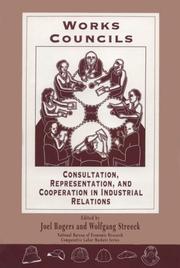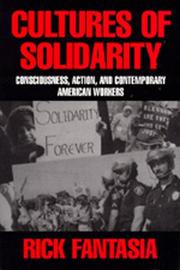| Listing 1 - 8 of 8 |
Sort by
|
Book
ISBN: 1978823487 1978823460 Year: 2023 Publisher: New Brunswick, New Jersey : Rutgers University Press,
Abstract | Keywords | Export | Availability | Bookmark
 Loading...
Loading...Choose an application
- Reference Manager
- EndNote
- RefWorks (Direct export to RefWorks)
"First-Generation Faculty of Color: Reflections on Research, Teaching, and Service is the first book to examine the experiences of racially minoritized faculty who were also the first in their families to graduate college in the United States. From contingent to tenured faculty who teach at community college, comprehensive, and research institutions, the book is a collection of critical narratives that collectively show the diversity of faculty of color, attentive to and beyond race. The book is organized into three major parts comprised of chapters in which faculty of color depict how first-generation college student identities continue to inform how minoritized people navigate academe well into their professional careers, and encourage them to reconceptualize research, teaching, and service responsibilities to better consider the families and communities that shaped their lives well before college"--
First-generation college students --- Minority college teachers --- Education, Higher --- Social aspects --- United States. --- people of color, race politics, working class americans, american workers, blue collar jobs, marginalized communities, hispanic people in the workplace, hispanic workers, black workers, african american workers, asian workers, first generation immigrants, immigrant struggle, racism in the workplace, racism case studies, resources for faculty, faculty training books, first generation students, racial tokenization, first-generation faculty, faculty diversity.

ISBN: 1282267167 9786612267161 0226261905 9780226261904 9780226261898 0226261891 661226716X 9781282267169 Year: 2009 Publisher: Chicago University of Chicago Press
Abstract | Keywords | Export | Availability | Bookmark
 Loading...
Loading...Choose an application
- Reference Manager
- EndNote
- RefWorks (Direct export to RefWorks)
Beginning in the early 2000s, there was an upsurge of national concern over the state of the science and engineering job market that sparked a plethora of studies, commission reports, and a presidential initiative, all stressing the importance of maintaining American competitiveness in these fields. Science and Engineering Careers in the United States is the first major academic study to probe the issues that underlie these concerns. This volume provides new information on the economics of the postgraduate science and engineering job market, addressing su
Scientists --- Engineers --- Science --- Engineering --- Study and teaching (Higher) --- stem, science, engineering, job market, technology, career, professional, college, competition, american workers, industry, business, nonfiction, economy, growth, innovation, female doctorates, women, gender, diversity, foreign-born, immigration, graduates, recruitment, academe, patents, research papers, publication, knowledge, graduation, phds, postgraduate, employment, inefficiency, higher education, scientific dissemination, commerce, promotions.
Book
ISBN: 0691184208 Year: 2018 Publisher: Princeton, New Jersey : Princeton University Press,
Abstract | Keywords | Export | Availability | Bookmark
 Loading...
Loading...Choose an application
- Reference Manager
- EndNote
- RefWorks (Direct export to RefWorks)
Why working-class Americans almost never become politicians, what that means for democracy, and what reformers can do about itWhy are Americans governed by the rich? Millionaires make up only three percent of the public but control all three branches of the federal government. How did this happen? What stops lower-income and working-class Americans from becoming politicians? The first book to answer these urgent questions, The Cash Ceiling provides a compelling and comprehensive account of why so few working-class people hold office-and what reformers can do about it.Using extensive data on candidates, politicians, party leaders, and voters, Nicholas Carnes debunks popular misconceptions (like the idea that workers are unelectable or unqualified to govern), identifies the factors that keep lower-class Americans off the ballot and out of political institutions, and evaluates a variety of reform proposals.In the United States, Carnes shows, elections have a built-in "cash ceiling," a series of structural barriers that make it almost impossible for the working-class to run for public office. Elections take a serious toll on candidates, many working-class Americans simply can't shoulder the practical burdens, and civic and political leaders often pass them over in favor of white-collar candidates. But these obstacles aren't inevitable. Pilot programs to recruit, train, and support working-class candidates have the potential to increase the economic diversity of our governing institutions and ultimately amplify the voices of ordinary citizens.Who runs for office goes to the heart of whether we will have a democracy that is representative or not. The Cash Ceiling shows that the best hope for combating the oversized political influence of the rich might simply be to help more working-class Americans become politicians.
Campaign funds --- Elections --- American politics. --- American workers. --- Americans. --- U.S. elections. --- U.S. politics. --- US elections. --- candidate recruitment. --- cash ceiling. --- economic diversity. --- elections. --- governing institutions. --- lower-income Americans. --- political campaigns. --- political candidate. --- political equality reform. --- political influence. --- political office. --- political representation. --- politicians. --- politics. --- public office. --- underrepresentation. --- upper class. --- working-class Americans. --- working-class candidates.

ISBN: 1882197453 9786611001575 1281001570 1604910992 1932973494 1604918004 160491856X Year: 1998 Publisher: Greensboro, NC : Center for Creative Leadership,
Abstract | Keywords | Export | Availability | Bookmark
 Loading...
Loading...Choose an application
- Reference Manager
- EndNote
- RefWorks (Direct export to RefWorks)
The selection - development - support framework described in this report not only identifies the important factors to consider when working overseas but also specifies ways to develop a talent pool of effective expatriates.
Corporations, Foreign --- Corporations, American --- Executives --- Middle managers --- Americans --- Commerce --- Business & Economics --- Marketing & Sales --- Personnel management. --- Training of. --- Employment --- Personnel management --- Training of --- American workers in foreign countries --- Employment of Americans in foreign countries --- Middle-level managers --- Middle management --- Executive training --- Executives, Training of --- Management development --- Management training --- American corporations --- Foreign corporations --- Juristic persons, Foreign --- Assessment centers (Personnel management procedure) --- Aliens --- Business enterprises, Foreign --- Corporation law --- International business enterprises --- Investments, Foreign --- Corporations --- Nationality

ISBN: 0226723763 9786612070198 1282070193 0226723798 9780226723792 Year: 1995 Publisher: Chicago, Ill. University of Chicago Press
Abstract | Keywords | Export | Availability | Bookmark
 Loading...
Loading...Choose an application
- Reference Manager
- EndNote
- RefWorks (Direct export to RefWorks)
As the influence of labor unions declines in many industrialized nations, particularly the United States, the influence of workers has decreased. Because of the need for greater involvement of workers in changing production systems, as well as frustration with existing structures of workplace regulation, the search has begun for new ways of providing a voice for workers outside the traditional collective bargaining relationship. Works councils-institutionalized bodies for representative communication between an employer and employees in a single workplace-are rare in the Anglo-American world, but are well-established in other industrialized countries. The contributors to this volume survey the history, structure, and functions of works councils in the Netherlands, Germany, France, Spain, Sweden, Italy, Poland, Canada, and the United States. Special attention is paid to the relations between works councils and unions and collective bargaining, works councils and management, and the role and interest of governments in works councils. On the basis of extensive comparative data from other Western countries, the book demonstrates powerfully that well-designed works councils may be more effective than labor unions at solving management-labor problems.
Employers and workers organisations --- North America --- Europe --- Comparative industrial relations --- Works councils --- Relations industrielles comparées --- Comités d'entreprise --- Congresses --- Case studies --- Congrès --- Cas, Etudes de --- Congresses. --- Relations industrielles comparées --- Comités d'entreprise --- Congrès --- E-books --- Industrial relations --- Co-determination (Industrial relations) --- Industrial councils --- Industrial relations councils --- Joint production committees --- Self-management --- Shop committees --- Shop councils --- Work councils --- Workers' control --- Workers' councils --- Works committees --- Workshop committees --- Workshop councils --- Management --- Labor-management committees --- Employee participation --- industry, industrial, labor, unions, unionization, industrialized, united states, usa, america, american, workers, workplace, workforce, relationship, interpersonal, council, communication, employer, employee, anglo, history, historical, structure, netherlands, germany, france, spain, sweden, italy, poland, canada, management, case studies, unionism, paternalism.

ISBN: 0520060539 9780520060531 0520067959 9780520067950 9786612355615 1282355619 0520909674 9780520909670 Year: 1988 Publisher: Berkeley University of California Press
Abstract | Keywords | Export | Availability | Bookmark
 Loading...
Loading...Choose an application
- Reference Manager
- EndNote
- RefWorks (Direct export to RefWorks)
A commonplace assumption about American workers is that they lack class consciousness. This perception has baffled social scientists, demoralized activists, and generated a significant literature on American exceptionalism. In this provocative book, a young sociologist takes the prevailing assumptions to task and sheds new light upon this very important issue. In three vivid case studies Fantasia explores the complicated, multi-faceted dynamics of American working-class consciousness and collective action. (provided by publisher)
Working class --- Labor unions --- Labor disputes --- Class consciousness --- Travailleurs --- Syndicats --- Travail --- Conscience de classe --- History --- Case studies. --- Histoire --- Conflits --- Cas, Etudes de --- Actions, Job --- Disputes, Labor --- Industrial disputes --- Job actions --- Industrial relations --- Law and legislation --- United States --- Consciousness --- Social perception --- Social classes --- #SBIB:316.334.2A419 --- 316.343.63 --- 316.344.24 --- 316.344.24 Beroepsstratificatie. Professionalisering. Beroepsprestige. Beroepsstatus. Professie --- Beroepsstratificatie. Professionalisering. Beroepsprestige. Beroepsstatus. Professie --- 316.343.63 Arbeidersstand. Proletariaat. Landarbeiders --(sociale stratificatie) --- Arbeidersstand. Proletariaat. Landarbeiders --(sociale stratificatie) --- Arbeidssociologie: Europees en wereldsyndicalisme --- activism. --- american exceptionalism. --- american workers. --- business economics. --- capitalism. --- class consciousness. --- class. --- collective action. --- collective bargaining. --- collectivism. --- ethnic differences. --- factory workers. --- labor and work. --- labor industrial relations. --- labor. --- marxist theory. --- nonfiction. --- organizations. --- political history. --- political science. --- race. --- racial differences. --- racism. --- rank and file. --- social movements. --- social science. --- social theory. --- solidarity. --- the economy. --- union meetings. --- unions. --- wildcat strikes. --- workers. --- working class.
Book
ISBN: 0520954963 9780520954960 9780520275829 0520275829 Year: 2013 Volume: 6 Publisher: Berkerley University of California Press
Abstract | Keywords | Export | Availability | Bookmark
 Loading...
Loading...Choose an application
- Reference Manager
- EndNote
- RefWorks (Direct export to RefWorks)
Deceit and Denial details the attempts by the chemical and lead industries to deceive Americans about the dangers that their deadly products present to workers, the public, and consumers. Gerald Markowitz and David Rosner pursued evidence steadily and relentlessly, interviewed the important players, investigated untapped sources, and uncovered a bruising story of cynical and cruel disregard for health and human rights. This resulting exposé is full of startling revelations, provocative arguments, and disturbing conclusions--all based on remarkable research and information gleaned from secret industry documents. This book reveals for the first time the public relations campaign that the lead industry undertook to convince Americans to use its deadly product to paint walls, toys, furniture, and other objects in America's homes, despite a wealth of information that children were at risk for serious brain damage and death from ingesting this poison. This book highlights the immediate dangers ordinary citizens face because of the relentless failure of industrial polluters to warn, inform, and protect their workers and neighbors. It offers a historical analysis of how corporate control over scientific research has undermined the process of proving the links between toxic chemicals and disease. The authors also describe the wisdom, courage, and determination of workers and community members who continue to voice their concerns in spite of vicious opposition. Readable, ground-breaking, and revelatory, Deceit and Denial provides crucial answers to questions of dangerous environmental degradation, escalating corporate greed, and governmental disregard for its citizens' safety and health. After eleven years, Markowitz and Rosner update their work with a new epilogue that outlines the attempts these industries have made to undermine and create doubt about the accuracy of the information in this book.
Environmental health. --- Environmental health --- Factory and trade waste --- Pollution --- Chemical pollution --- Chemicals --- Contamination of environment --- Environmental pollution --- Contamination (Technology) --- Asbestos abatement --- Bioremediation --- Environmental engineering --- Environmental quality --- Hazardous waste site remediation --- Hazardous wastes --- In situ remediation --- Lead abatement --- Pollutants --- Refuse and refuse disposal --- Health --- Health ecology --- Public health --- Health risk assessment --- Social aspects. --- Environmental aspects. --- Health aspects. --- Environmental aspects --- Health aspects --- Environmental Pollution --- Industry --- Disclosure. --- History, 20th Century. --- Lead Poisoning. --- Vinyl Chloride --- history. --- ethics. --- adverse effects. --- History, 20th Century --- history --- american workers. --- chemical industry. --- conspiracy. --- corporate control. --- deadly products. --- disease. --- ecology. --- engaging. --- environment. --- environmental hazard. --- environmental health. --- environmental history. --- environmental pollution. --- environmental. --- global warming. --- health care issues. --- historical. --- immediate dangers. --- industrial polluters. --- lead industry. --- manufacturing industry. --- pharmocology. --- political. --- politics. --- public health. --- science and math. --- sociological. --- sustainability. --- technology. --- toxic chemicals. --- toxicology.
Book
ISBN: 0520962397 9780520962392 9780520287204 0520287207 9780520287211 0520287215 Year: 2016 Publisher: Oakland, California
Abstract | Keywords | Export | Availability | Bookmark
 Loading...
Loading...Choose an application
- Reference Manager
- EndNote
- RefWorks (Direct export to RefWorks)
How has Latino immigration transformed the South? In what ways is the presence of these newcomers complicating efforts to organize for workplace justice? Scratching Out a Living takes readers deep into Mississippi's chicken processing plants and communities, where large numbers of Latin American migrants were recruited in the mid-1990s to labor alongside an established African American workforce in some of the most dangerous and lowest-paid jobs in the country. As America's voracious appetite for chicken has grown, so has the industry's reliance on immigrant workers, whose structural position makes them particularly vulnerable to exploitation. Based on the author's six years of collaboration with a local workers' center, this book explores how Black, white, and new Latino Mississippians have lived and understood these transformations. Activist anthropologist Angela Stuesse argues that people's racial identifications and relationships to the poultry industry prove vital to their interpretations of the changes they are experiencing. Illuminating connections between the area's long history of racial inequality, the industry's growth and drive to lower labor costs, immigrants' contested place in contemporary social relations, and workers' prospects for political mobilization, Scratching Out a Living paints a compelling ethnographic portrait of neoliberal globalization and calls for organizing strategies that bring diverse working communities together in mutual construction of a more just future.
Industrial relations --- African Americans --- Foreign workers, Latin American --- Chicken industry --- Capital and labor --- Employee-employer relations --- Employer-employee relations --- Labor and capital --- Labor-management relations --- Labor relations --- Employees --- Management --- Afro-Americans --- Black Americans --- Colored people (United States) --- Negroes --- Africans --- Ethnology --- Blacks --- Alien labor, Latin American --- Latin American foreign workers --- Poultry industry --- Social conditions. --- Mississippi --- Race relations. --- Social conditions --- E-books --- Black people --- african american workers. --- american migrants. --- american workforce. --- black and immigrant labor. --- black workers. --- chicken processing. --- ethnic studies. --- exploitative labor practices. --- hispanic american studies. --- industrial food production. --- latin american immigrants. --- latinx immigration. --- latinx in the us south. --- mississippi labor. --- neoliberal globalization. --- poultry industry. --- race and labor. --- racial inequality in the us. --- racial inequality. --- working class inequality. --- working class.
| Listing 1 - 8 of 8 |
Sort by
|

 Search
Search Feedback
Feedback About UniCat
About UniCat  Help
Help News
News